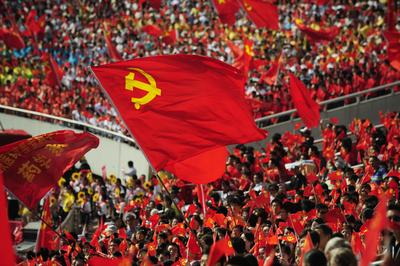This has not been a good year for continued progress in the direction of greater liberalisation of the political system, wider press freedoms or a truly independent judiciary, all essential components of the sort of China sought by its best minds for well over a century. At the same time, the number of individual citizens who have announced they will run for district people’s congresses in elections between July and December 2012 — despite admonitory comments from some official sources — is a reminder that China’s reality is complex. This issue of EAFQ, as well as offering authoritative diagnosis of current problems, sets out signposts for the future of governing China.
Leadership transition is already under way in China. The semi-paralysis it brings to national affairs ironically reminds one of the shutdown that accompanies a presidential transition in the United States. Kerry Brown’s lead essay this week from EAFQ distils the challenge for China’s new leadership.
As it becomes clearer who the fifth generation leaders will be, and how jobs will be allocated among them, he argues that intense scrutiny will be focused on what clues they give about how they might approach this hugely challenging and sensitive issue of political reform. This might seem a theoretical interest given recent trends and the growing tendency outside China, especially in the United States, to characterise the Chinese political system as static and retrogressive, rather than full of dynamic uncertainty. On the contrary, it is of immense and practical interest both inside China and out.
Brown notes that amid all the contrary noise the 12th Five Year Program, which was passed in Beijing last March at the annual National People’s Congress, the Chinese parliament, gave recognition to this in talking about the need to build social infrastructure and a more stable, equal society. For the next decade, therefore, the issue will not be about the first battle that modernisation in China had to confront — to build GDP and a more prosperous society — but about the conflicts that have come after that and by what mechanisms to resolve them.
The challenge for China now is to deal with the issues it faces as it progresses towards a middle-income-status country (a stated goal and one that it is likely to achieve by 2020). ‘These are proving to be far trickier and more demanding than simply pumping out good growth rates, and it is on these, more and more, that the future leadership of China will need to show the same kind of strong vision that their predecessors did about the economy, back in the late 1970s’, Brown correctly asserts.
The contributions in this fascinating collection include essays from non-Chinese and Chinese scholars from a number of countries, and the latter include both scholars outside the system and those occupying influential positions within the system. They include contributions from the Central Party School in Beijing, eight members of whose professoriate will engage in discussion of these issues at a roundtable with colleagues at the ANU and leading officials this week. We look forward to publishing their thinking on EAF over the coming months. This is a new and welcome development, one that needs to be repeated many times over as China seeks answers to managing the institutional, political as well as the economic dimensions of what is going on in Chinese society.
The striking feature here is the agreement by all on the need for further reform, including political reform. As Wang Gungwu reminds us, many fine minds are juggling, and struggling, with a wealth of ideas and ways to achieve the goal of a state and nation that is progressive, stable and widely admired. It is among the most important intellectual tasks of our age.
Peter Drysdale

